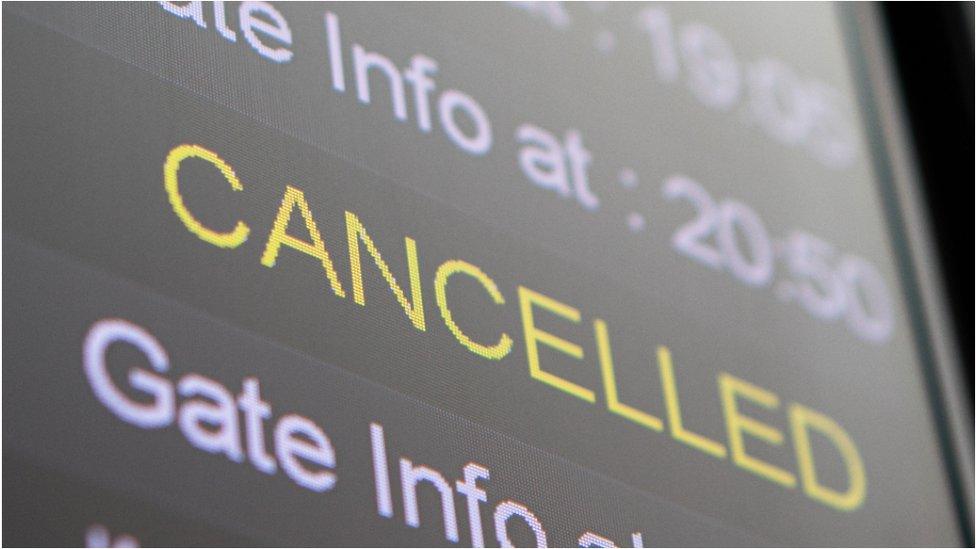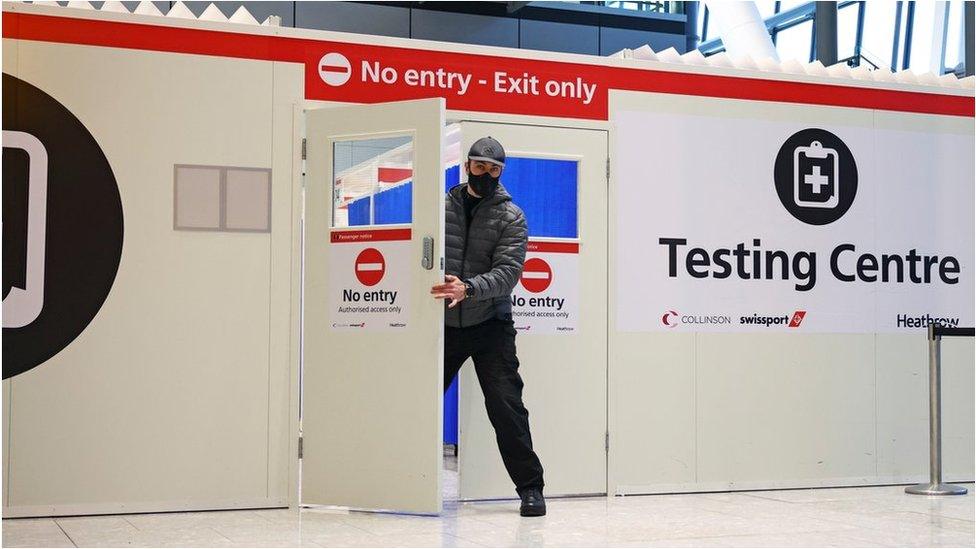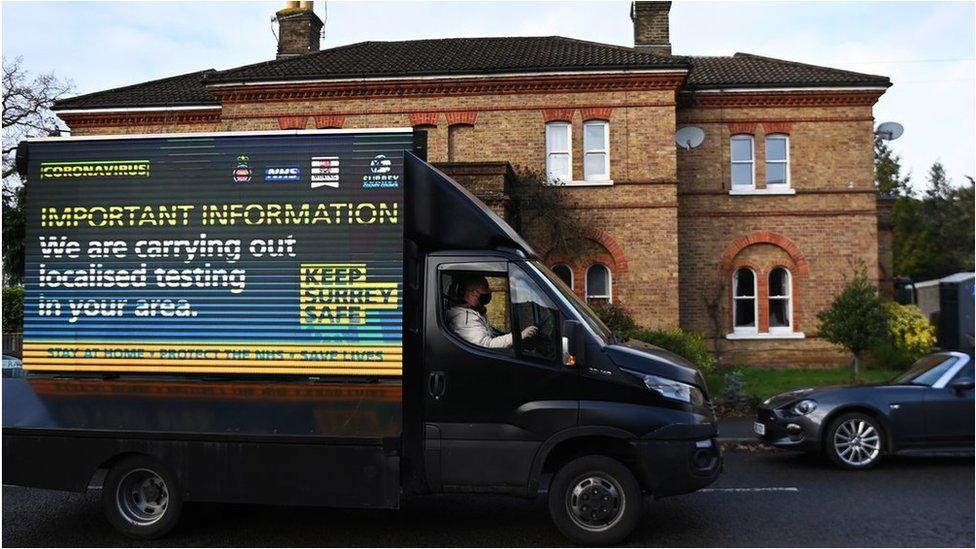Covid: What is the government doing about the South Africa variant?
- Published

A new variant of coronavirus which was first identified in South Africa in December has since been detected in dozens of countries. There are concerns it can spread faster and that vaccines may not work quite as well against it.
On 23 December, the government announced that it had detected two cases of the variant in the UK.
Up to 14 April, this had risen to 600 cases, external.
What is the government doing?
On 24 December, a travel ban was imposed on South Africa. On 9 January, this was extended to nine other southern African countries.
UK residents and Irish nationals were exempted from this ban but were required to self-isolate for 10 days at home, external. They were allowed to use public transport to get there from the airport.
We asked the government how many people had come to the UK from South Africa - via third countries - since 24 December.
We were told it does not publish this information. The Office for National Statistics does not collect figures for indirect flights either.
The government's "red list", external of countries from which you are banned from flying to the UK has grown to nearly 40. It includes South America (where another variant has been found).
British or Irish nationals are still allowed to come to the UK from these countries but must quarantine in a government-allocated hotel for 10 days and take two tests.
Only essential international travel is allowed and anyone arriving in the UK from a country not on the red list still has to quarantine at home for 10 days and be tested.
All tests on people arriving in the UK are being sequenced to see if they have the new variants.

Ravi Gupta, professor of microbiology at the University of Cambridge, believes an overall ban on non-residents coming to the UK would have been better.
"The trouble with red lists is that we usually get the wrong countries, infected people come in by other routes and lists discourage countries trying to find new variants," he said.
But he says travel restrictions should be a short-term strategy while encouraging manufacturers to make their vaccines better able to deal with the variants.
Is the government targeting enough countries?
On 13 April, external, the World Health Organisation identified 82 countries where the South Africa variant had been found. Of those, only 21 were on the red list.
Health Secretary Matt Hancock has said "we keep the red list of countries under review".
Prof Neil Ferguson from Imperial College, London, told BBC News on 19 March: "some countries - France notably - are seeing a significant fraction, five to 10% of their cases are the South Africa variant at the moment".
He suggested that as there is "a lot of essential travel" between the UK and France, the government should consider further measures to reduce the risk of more of the variant reaching the UK.
From 6 April, lorry drivers entering England from continental Europe need to be tested for coronavirus within 48 hours of arrival, or face a £2,000 fine.
What has Sage said?
Sage is the scientific advisory group, which helps inform the government's decisions.
On 22 December it raised "theoretical" concerns about the South Africa variant, external.
At its meeting on 7 January, external, Sage said that cases of the new South Africa variant continued to be found despite the imposition of travel restrictions two weeks earlier. It added that there were two potential cases which did not seem to be linked to travel.
Then at its meeting on 21 January, external, Sage said: "No intervention, other than a complete, pre-emptive closure of borders, or the mandatory quarantine of all visitors upon arrival in designated facilities, irrespective of testing history, can get close to fully preventing the importation of cases or new variants."
Tracking cases
Normal testing does not identify which variant of the virus a patient has - that has only been done so far by genome sequencing,
Its use has grown from between 5% and 7% of positive cases in the UK in early February, to a level of 30%.
The amount of time it takes for that sequencing to happen is important because of the danger that a variant may have spread by the time it has been identified.
That time has been gradually shortening to around four to five days, but the NHS is trialling a new technology, external called genotype assay testing, which could potentially halve that.

Surge testing
On-the-spot doorstep tests, home testing kits and mobile testing units are being deployed in a number of areas in the UK where new variants have been found.
The areas involved, external are these areas:
Parts of the N3 postcode in the London Borough of Barnet
Parts of the HA2 postcode area in the London Borough of Harrow
Parts of the UB3 postcode in the London Borough of Hillingdon
The London boroughs of Lambeth and Wandsworth
Parts of SE16 in the London Borough of Southwark
Prof Lawrence Young from Warwick Medical School said he was sceptical about surge testing. "I'm not sure how it's going to contain infection given the time frame - it's likely to have already spread once it's been found," he said.
This piece has been updated to reflect the rising number of cases of the South Africa variant and different areas carrying out surge testing.

A SIMPLE GUIDE: How do I protect myself?
AVOIDING CONTACT: The rules on self-isolation and exercise
WHAT WE DON'T KNOW How to understand the death toll
TESTING: Can I get tested for coronavirus?
LOOK-UP TOOL: Check cases in your area



